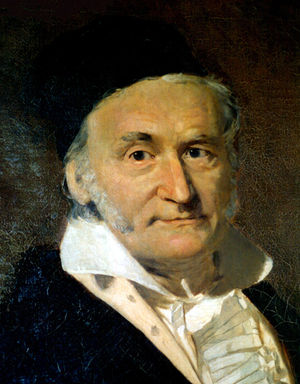by Jason S. Bardi
 The holiday season is upon us, and spending the weekend at the relatively unconnected house of a close relative makes me long for all those modern conveniences I take for granted: cell phones, PDAs, digital cable, and high-speed wireless. Lack of wireless is going to force me to find an internet café in a little while, as soon as I am done writing this. Meanwhile, being cut off from the Web is the perfect entry into telling the story of how our modern era of electronic communication came to be — its ancient origins — a story that I recount in my latest book “The Fifth Postulate,” which is hitting store shelves this month (published by John Wiley & Sons).
The holiday season is upon us, and spending the weekend at the relatively unconnected house of a close relative makes me long for all those modern conveniences I take for granted: cell phones, PDAs, digital cable, and high-speed wireless. Lack of wireless is going to force me to find an internet café in a little while, as soon as I am done writing this. Meanwhile, being cut off from the Web is the perfect entry into telling the story of how our modern era of electronic communication came to be — its ancient origins — a story that I recount in my latest book “The Fifth Postulate,” which is hitting store shelves this month (published by John Wiley & Sons).
This year, 2008, is the 175th anniversary of electronic communication, though the anniversary passed quietly and went, to my knowledge, unnoticed. It was born 175 years ago thanks to a clever invention by the great mathematician Carl Friedrich Gauss, who in the 1830s invented an early working telegraph. Though he was never able to develop the technology further, he clearly saw its potential. A single tap, he would write, would enable instantaneous communication between distant cities.
Like many of the great discoveries Gauss made in his life, Gauss's telegraph was not appreciated until after his death. Neither was non-Euclidean geometry, another one of Gauss's great inventions. Both developments are featured in my new book.
Now here's the story:
The Sunday churchgoers in the town of Göttingen discovered a new feature adorning the steeple of their beloved St. John’s Church in 1833. Two lines of curved wires, one up to the top of the church and one down again on the other side, had been installed at the orders of the local celebrity scientist, Carl Friedrich Gauss, a man who in some depictions bears a strangely strikingly similar resemblance to Ebenezer Scrooge. He was, by all accounts, extremely un-Scrooge like as a scientist, and this was most apparent in his collaborations with those in his life with whom he shared scientific or mathematical interest. He devoted himself generously to such collaborations at various times in his life.
You have to understand that Gauss devoted himself to these collaborations despite the fact that he may not have had much to gain from any of them. There were none in his day and very few in the history of mathematics who could have taught him much of anything. Gauss is often grouped with Isaac Newton and Archimedes as one of the three greatest mathematicians in history. Gauss was, like those other two, a solitary genius who made his greatest discoveries while working alone, without ever consulting anyone else. While it is hard to know how Archimedes treated his collaborative peers, if indeed he had any, Isaac Newton struggled to maintain civility in the collaborations throughout his life. At times, his collaborations erupted into nasty disputes.
Somehow, though, Gauss managed to have several very fruitful collaborations, and one of the most fruitful was his work with a twenty-four-year-old scholar named William Weber, who arrived at Göttingen to be a professor of physics when gauss was in his 50s. Gauss was a patron of sorts for Weber. The death of a Göttingen professor had created a vacancy at the university, and the government bureaucrat in charge of filling it wisely asked Gauss whom he should hire. Gauss had met Weber four years earlier at a conference in Berlin, and he enthusiastically supported the young scholar for the position. Weber's arrival sparked the final period of great productivity in Gauss’s career.
Though Weber was half Gauss's age, their relationship quickly grew close. They became fast friends and were often dinner guests in each other’s homes. More than that, they had countless scientific discussions, performed experiments together, and started a journal to publish their results.
Read more »
Inbreeding is the source of jokes about British royalty and is associated with increased birth defects among offspring. The practice is so reviled that 31 U.S. states ban marriage between first cousins or allow it only if the couple has undergone genetic counseling or at least one partner is sterile or no longer fertile because of age.
